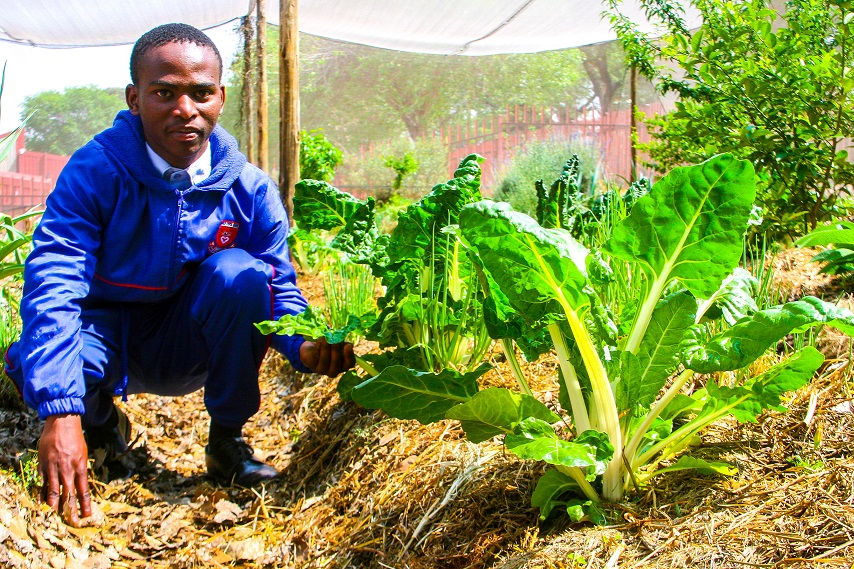THE advent of spring had representatives of Tiger Brands, South Africa’s largest food producer, and Food & Trees for Africa (FTA) converge at Phillip Kushlick School – the special needs school located within the Chris Hani Baragwanath Hospital complex – to celebrate South Africa’s leading nutrition programme promoting food security.
The programme, named EduPlant, was established in 1994, and is South Africa’s longest-running and largest school gardening and nutrition programme.
Run by Food & Trees for Africa, with sponsorship from Tiger Brands since 2019 – the programme has been helping communities through the establishment of productive organic food gardens.
EduPlant – which is SACE-accredited and complements the National School Nutrition Programme (NSNP) – serves as an extension to the classroom, with FTA facilitators providing theoretical knowledge and techniques to educators and learners, which are practically workshopped and then implemented by learners with the necessary gardening tools and planting materials provided to them.
Through gardening, learners develop and apply practical skills which in turn create pathways to potential careers in agriculture and related fields.
Additionally, EduPlant’s support of the agroecology prevocational subject, enables schools such as Phillip Kushlick – whose food garden was a finalist in the EduPlant programme competition in 2020 – to use the garden to develop tactile sensitivity with structured exercises of sand play therapy, water therapy and plant textures.
This effectively enhance the learners’ hand-eye coordination and memory skills.
During the morning of September 12, the visitors, along with a news media contingent, were taken on a tour of the school’s flourishing food gardens in order to experience how educators and learners have integrated gardening into both their curriculum and daily lives. The gardens – as well as those from more than 1200 participating schools – not only sustain its nutrition programme but also enables it to share fresh produce with surrounding communities and generate income from surplus crops.

Pending the tour, a beneficiary of the programme’s impact, Lulekani Kalashe, a 19- year-old and Grade 5 pupil at the school who aspires to become a farmer, proudly showed off his garden patch to the guests.
Surrounded by growing broccoli, beetroot, cabbage, spinach, onions, herbs and peach trees, the lad from the adjacent Elias Motsoaledi neighbourhood mentioned that his endeavour enabled him to sell his produce to the school as well as take some home.
The educational tour culminated in a commemorative tree planting ceremony
conducted by the Executive Director of Food & Trees for Africa, Chris Wild, with the assistance of the school’s principal Mirriam Makhetha, Maanda Milubi the Director of Enterprise and Supplier Development & Transformation at Tiger Brands and Gerson Nethavhani, the Deputy Director of Environmental, Policy Planning and Coordination and Climate Change at Gauteng Department of Agriculture, Rural Development and Environment.
Overviewed Wild: “The implementation of the EduPlant programme at Philip Kushlick School is a powerful example of how a school food garden can go beyond education to directly improve the lives and future prospects of its students and the broader community. The tangible improvements in the garden and harvest impact positively on the growth and development of our often marginalised and differently abled learners.”
Whilst an impressed Milubi stated: “Through the EduPlant programme, with its focus on building self-sustaining communities, we are not only addressing immediate hunger but helping to restore hope and resilience for the future. This is how Tiger Brands lives its purpose to nourish and nurture more lives every day.”
All images Jacob MAWELA (Max Nkuna of Food & Trees for Africa limned instructing a Phillip Kushlick pupil to plant a tree).


